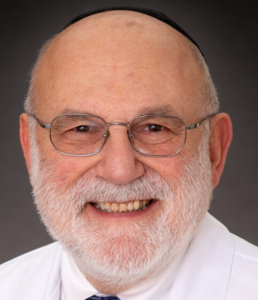
“Extremely” dense breasts have been noted in medical literature to be a significant risk for cancer, but what about compared to the biggest risk factors such as family history and BRCA?
Breast Density Categories on Mammographic Studies
• Not dense but fatty
• Scattered density
• Heterogeneous density
• Extreme density
“It is important to know that there are certain recognized risk factors for developing breast cancer,” says Dennis Citrin, MD, PhD, a board-certified medical oncologist who works with a team of experts to help patients fight breast cancer at City of Hope Chicago.
“Certainly, the presence of the BRCA gene is paramount,” continues Dr. Citrin.
To the layperson it can appear that the top four risk factors for a first-time diagnosis of breast cancer are:
1. BRCA mutation
2. First-degree relative with the disease
3. Extremely dense breasts
4. Age 50+
Other risk factors that seem to the layperson to be further down the line include (no particular order) drinking, obesity, past radiation treatment for an unrelated cancer, early start of menstruation, late menopause, never having had babies, sedentary lifestyle, poor diet, Jewish ancestry and hormone replacement therapy.
First in Line for Greatest Risks for Breast Cancer
Dr. Citrin explains, “If multiple family members are diagnosed with breast cancer before the age of 50, a person is of the Jewish ancestry or there is a history of breast and ovarian cancer in the same person in the family, these are signs that there well may be a genetic mutation that increases cancer risk.
“If a woman carries the BRCA mutation, then she may choose to have a prophylactic mastectomy.”
Second in Line for Breast Cancer Risk
“Second in line and other factors to consider is if a woman received radiation for Hodgkin’s disease or Hodgkin’s lymphoma, or a similar condition during adolescence or early adulthood,” explains Dr. Citrin.
Third Biggest Risk Factor for Breast Cancer
“I would state that family history, absent of a documented gene mutation, would be third in line,” says Dr. Citrin.
“Other risk factors to mention would be the extended use of hormone replacement therapy (with combined estrogen and progesterone), heavy alcohol use and obesity.

Obesity is a proven risk factor for breast cancer.
“Dense breasts do increase the probability of a woman’s risk for breast cancer if a screening mammogram shows her breasts are denser than normal, but the risk factor is not as high.
The reality is that every woman should be considered at risk for developing breast cancer.”
For All Women
Rather than fret about the order of breast cancer risks and where extremely dense breasts fit in when compared to the more publicized risk factors, why not focus on the variables that you CAN modify, such as:
• Maintaining a healthy body weight
• Engaging in structured aerobic and resistance exercise
• Adhering to a plant based diet and including plenty of cruciferous and green leafy vegetables and berries
• Eliminating alcoholic beverages altogether
• Avoiding smoking
 Dennis Citrin, MD, is board certified in medical oncology with 30+ years’ experience, devotes his practice exclusively to patients with breast cancer and other high-risk breast conditions. He is the author of the book, “Knowledge is Power: What Every Woman Should Know About Breast Cancer.”
Dennis Citrin, MD, is board certified in medical oncology with 30+ years’ experience, devotes his practice exclusively to patients with breast cancer and other high-risk breast conditions. He is the author of the book, “Knowledge is Power: What Every Woman Should Know About Breast Cancer.”
 Lorra Garrick has been covering medical, fitness and cybersecurity topics for many years, having written thousands of articles for print magazines and websites, including as a ghostwriter. She’s also a former ACE-certified personal trainer.
Lorra Garrick has been covering medical, fitness and cybersecurity topics for many years, having written thousands of articles for print magazines and websites, including as a ghostwriter. She’s also a former ACE-certified personal trainer.
.









































